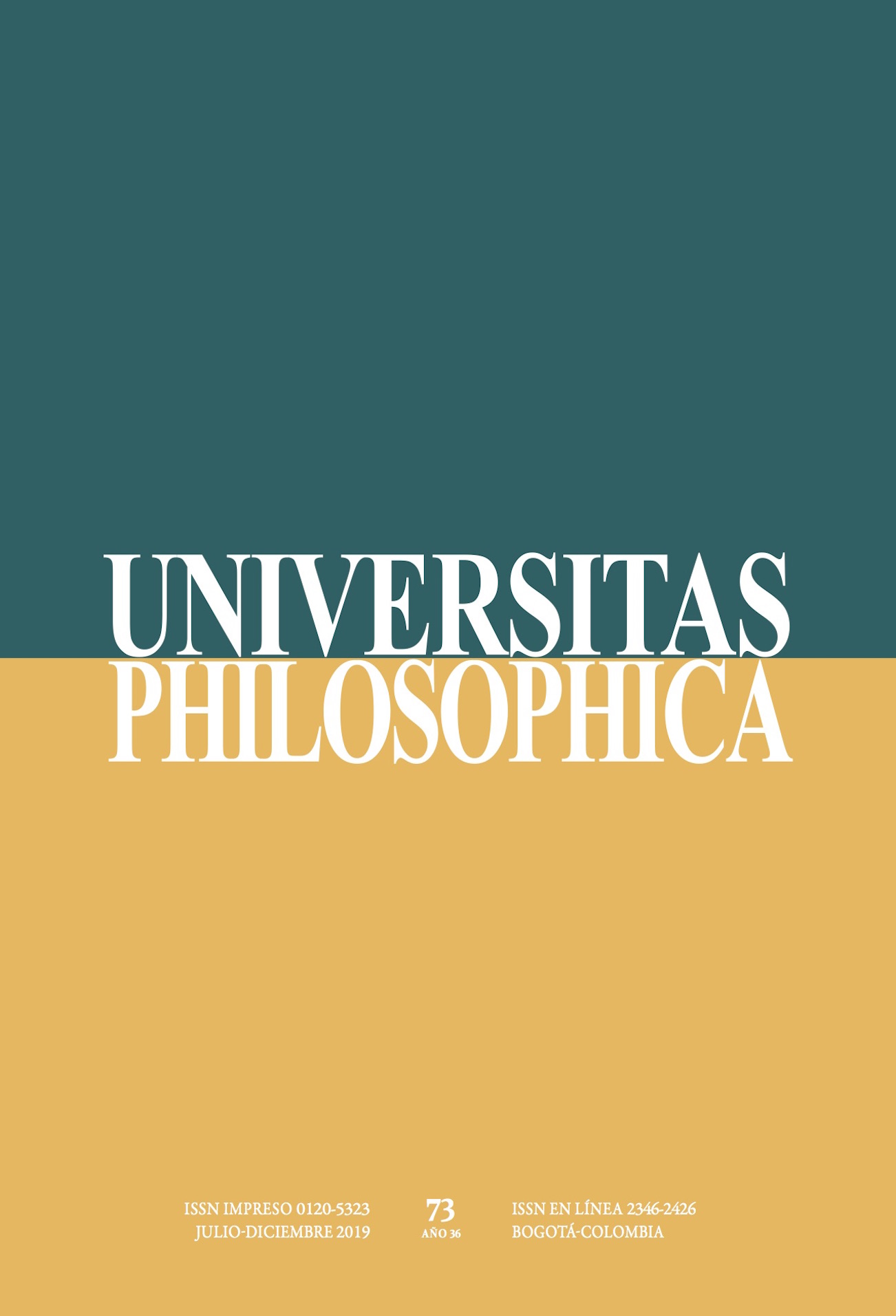Abstract
Partial commentaries of Gomez Davila’s epigraphs in Scholia to an Implicit Text have been put forward by several scholars. Nevertheless, none of them has yet attempted a systematic study of their meaning and their relation to the rest of the book or the literary sources to which they allude. This article is aimed to present such a systematic analysis, thus revealing two things: first, a number of essential premises of Gómez Dávila’s thought; second, the importance of intertextuality for a thorough understanding of this work: the epigraphs need an hors du texte and the scholia to be interpreted, just as the scholia need the epigraphs and an “out of the text” to be deciphered. In other words, neither is autonomous: their meaning is to be found in intertextuality.
Flaubert, G. (2014). Madame Bovary. (Trans. M. Armiño). Madrid: Siruela.
Gadamer, H. (1999). Verdad y método (Vol. 1). Fundamentos de una hermenéutica filosófica. (Trad. A. Agud Aparicio & R. de Agapito). Salamanca: Sígueme.
Gellius (1927). Attic Nights (Vol. I, Books 1-5, Loeb Classical Library 195). (Trad. J. C. Rolfe). Cambridge: Harvard University Press. doi: 10.4159/DLCL.gellius-attic_nights.1927. Recuperado de: Gellius. Attic Nights. [Edición digital] The University of Chicago: http://penelope.uchicago.edu/Thayer/E/Roman/Texts/Gellius/Praefatio*.html
Goenaga, F. E & Barguil, N. A. (2018). El eclecticismo de un estilo. En: Mejía, J. F. (Ed.). Facetas del pensamiento de Nicolás Gómez Dávila (pp. 97-111). Bogotá: Editorial Pontificia Universidad Javeriana / Instituto Caro y Cuervo.
Gómez Dávila, N. (2002). Textos I. Bogotá: Villegas Editores.
Gómez Dávila, N. (2003). Notas. Bogotá: Villegas Editores.
Gómez Dávila, N. (2005a). Escolios a un texto implícito. Tomo I. Bogotá: Villegas.
Gómez Dávila, N. (2005b). Nuevos escolios a un texto implícito. Tomo I. Bogotá: Villegas.
Gómez Dávila, N. (2005c). Sucesivos escolios a un texto implícito. Tomo I. Bogotá: Villegas.
Gómez Dávila, N. (2017). “De Iure” (T. Molina, Trad.). Revista Nova et Vetera.
Kinzel, T. (2015). Aphoristic thought, the problem of reading and the “implicit library”. Reflections on Nicolás Gómez Dávila. En: C. B. Gutiérrez (Ed.), Coloquio en el centenario de Don Nicolás Gómez Dávila (1913-2013) (pp. 22-32). Bogotá: Universidad de los Andes.
Mejía, J. F. (2018). Introducción. En: Mejía, J. F. (Ed.). Facetas del pensamiento de Nicolás Gómez Dávila (pp. 15-53). Bogotá: Editorial de la Pontificia Universidad Javeriana / Instituto Caro y Cuervo.
Montaigne, M. (s. f.). Ensayos de Montaigne seguidos de todas sus cartas conocidas hasta el día. Biblioteca Virtual Miguel de Cervantes. Tomado de: http://www.cervantesvirtual.com/obra-visor/ensayos-de-montaigne--0/html/fefb17e2-82b1-11df-acc7-002185ce6064_84.html
Nietzsche, F. (1921). Selected Letters of Friedrich Nietzsche. (Ed. O. Levy, Trad. A. N. Ludovici). Garden City, New York and Toronto: Doubleday, Page & Company.
Petrarca, F. (2017). Selected Letters (Trans. E. Fantham). Cambridge, MA: Harvard University Press.
Rabier, M. (2013). Biblioteca gomezdaviliana: las fuentes del pensamiento de Nicolás Gómez Dávila (I). Revista Interamericana de Bibliotecología, 36(3), 235-248.
Rabier, M. (2014). La “cuestión literaria” en la obra de Nicolás Gómez Dávila. Perífrasis. Revista de Literatura, Teoría y Crítica, 5(10), 25-40.
Saralegui, M. (2016). Nicolás Gómez Dávila como crítico de la cultura hispánica. Ideas y Valores, 65(162), 315-336. doi: 10.15446/ideasyvalores.v65n162.48162.
Shakespeare, W. (2018). The Rape of Lucrece. En: The Complete Works of William Shakespeare [Edición digital]. Recuperado de: http://shakespeare.mit.edu.
Shakespeare, W. (s. f.). La violación de Lucrecia. Versión lírica de R. G. González. Biblioteca Virtual Universal. Tomado de: https://biblioteca.org.ar/libros/132751.pdf
Tilby, M. (2004). Flaubert’s Place in Literary History. En: Unwin, T. (Ed.). The Cambridge Companion to Flaubert (pp. 14-33). Cambridge: Cambridge University Press.
Unwin, T. (2004). Flaubert’s Early Work. En: Unwin, T. (Ed.). The Cambridge Companion to Flaubert (34-50). Cambridge: Cambridge University Press.
Volpi, F. (2005). Introducción. El solitario de Dios. En: Gómez Dávila, N. Escolios a un texto implícito (Vol. 1) (pp. 17-82). Bogotá: Villegas Editores.

This work is licensed under a Creative Commons Attribution 4.0 International License.
Copyright (c) 2019 Tomás Felipe Molina Peláez



